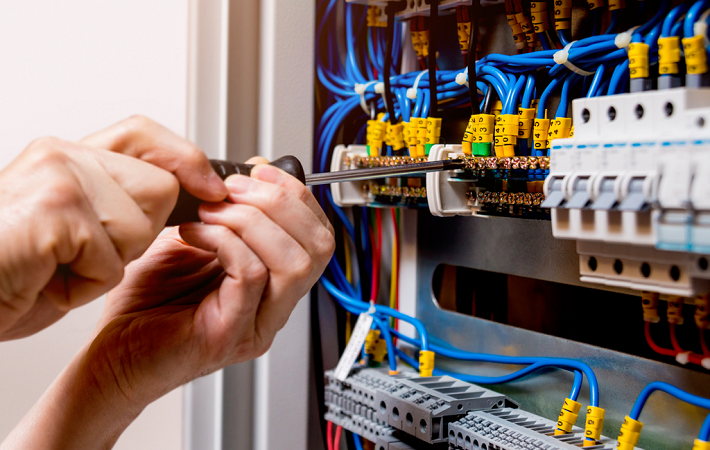In a world increasingly driven by technology and dependent on electricity, the role of electricians has never been more crucial. These skilled professionals are the backbone of modern infrastructure, ensuring that our homes, workplaces, and public spaces remain powered, safe, and functional. Yet, despite their essential contributions, electricians often remain unsung heroes. This article delves into the multifaceted world of electricians, exploring their responsibilities, training, challenges, and the evolving landscape of their profession.
The Scope of an Electrician’s Work
Electricians are tasked with installing, maintaining, and repairing electrical systems in residential, commercial, and industrial settings. Their work spans a wide range of activities, including wiring buildings, installing lighting fixtures, troubleshooting electrical faults, and ensuring compliance with electrical codes and safety standards.
Residential Electricians
Residential electricians focus on electrical systems within homes. Their duties include installing wiring during the construction of new homes, upgrading outdated systems, and performing repairs. They also install lighting, outlets, and electrical appliances. In an era where smart homes are becoming more prevalent, residential electricians are increasingly working with advanced systems that control lighting, heating, and security remotely.
Commercial Electricians
Commercial electricians work in various business settings, including offices, retail stores, and restaurants. They handle more complex electrical systems than those found in residential buildings, often dealing with higher voltages and more extensive wiring networks. Their responsibilities include installing and maintaining lighting, power distribution, and emergency systems. They also ensure that businesses comply with electrical regulations and that systems are efficient and safe.
Industrial Electricians
Industrial electricians operate in environments such as factories, power plants, and manufacturing facilities. They manage large-scale electrical systems that power machinery and production lines. This role requires a deep understanding of industrial processes and the ability to troubleshoot and repair complex equipment. Industrial electricians play a critical role in ensuring minimal downtime in production, which is vital for maintaining the efficiency and profitability of industrial operations.
Training and Qualifications
Becoming an electrician requires a combination of formal education, on-the-job training, and, often, state licensing. The path typically begins with a high school diploma or equivalent, followed by enrollment in a technical school or apprenticeship program.
Apprenticeships
An apprenticeship is a common and effective way to enter the profession. These programs, which typically last four to five years, combine classroom instruction with hands-on experience under the supervision of a licensed electrician. Apprentices learn to read blueprints, understand electrical codes, and master various electrical tasks. This period is crucial for developing the skills and knowledge required to handle the complexities of electrical work safely.
Licensing and Certification
Most states and localities require electricians to be licensed. The requirements for licensing vary but generally include completing an apprenticeship, passing a comprehensive exam, and accruing a certain amount of work experience. Some electricians also choose to earn additional certifications in specialized areas such as solar power or industrial electrical systems, enhancing their expertise and marketability.
The Day-to-Day Challenges
Electricians face numerous challenges in their daily work, from the physical demands of the job to the need for meticulous attention to detail.
Physical Demands
The work of an electrician is physically demanding, often involving long hours, working in confined spaces, and performing tasks at various heights. They must also handle heavy equipment and materials, requiring strength and stamina.
Safety Concerns
Safety is a paramount concern in electrical work. Electricians are regularly exposed to hazards such as electrical shocks, burns, and falls. Adherence to safety protocols and wearing appropriate protective gear are essential to minimize these risks. Electricians must also stay updated on the latest safety standards and practices to protect themselves and others.
Technical Complexity
Electrical systems are becoming increasingly complex, especially with the advent of new technologies and energy sources. Electricians must continuously update their skills and knowledge to keep pace with advancements such as smart grid technology, renewable energy systems, and sophisticated electrical components.
The Evolution of the Electrician’s Role
The role of electricians is evolving in response to technological advancements and changing energy needs. This evolution is shaping the future of the profession in several key ways.
Integration of Renewable Energy
As the world shifts towards sustainable energy, electricians are at the forefront of integrating renewable energy sources like solar and wind power into existing electrical systems. This involves installing and maintaining solar panels, wind turbines, and energy storage systems. Electricians must understand how these systems interact with traditional power grids and ensure they operate efficiently and safely.
Smart Homes and Buildings
The rise of smart homes and buildings is transforming the electrician’s role. These advanced systems use interconnected devices to automate and optimize various functions such as lighting, heating, and security. Electricians must be adept at installing and troubleshooting these sophisticated systems, which often involve a combination of electrical work, networking, and software configuration.
Advancements in Electrical Technology
Advancements in electrical technology are continually emerging, from more efficient wiring materials to advanced diagnostic tools. Electricians need to stay informed about these innovations and adapt their practices accordingly. This ongoing learning process ensures they can offer the most efficient and effective solutions to their clients.
The Importance of Electricians in Society
Electricians play a critical role in maintaining the infrastructure that powers modern life. Their work ensures that homes are comfortable, businesses are productive, and public spaces are safe. Without electricians, the reliability of our electrical systems would be compromised, leading to frequent outages, safety hazards, and decreased quality of life.
Supporting Economic Growth
Electricians contribute significantly to economic growth by enabling the construction and maintenance of buildings and infrastructure. Their work supports industries across the board, from manufacturing and healthcare to education and retail. By ensuring that electrical systems are reliable and efficient, electricians help businesses operate smoothly and cost-effectively.
Enhancing Public Safety
Public safety heavily depends on the work of electricians. Proper installation and maintenance of electrical systems prevent accidents such as fires and electrical shocks. Electricians also play a crucial role in disaster response and recovery, restoring power and repairing damaged systems to help communities return to normalcy after natural disasters.
The Future of the Electrician Profession
The future of the electrician profession is bright, with strong demand for skilled workers and opportunities for specialization and advancement. As technology continues to evolve, so too will the role of electricians, requiring them to be adaptable and forward-thinking.
Growing Demand
The demand for electricians is expected to grow steadily in the coming years. This growth is driven by factors such as the increasing complexity of electrical systems, the expansion of renewable energy installations, and the ongoing need for electrical maintenance and upgrades in aging buildings. The U.S. Bureau of Labor Statistics projects employment of electricians to grow by 8 percent from 2019 to 2029, much faster than the average for all occupations.
Opportunities for Specialization
Electricians have the opportunity to specialize in various areas, enhancing their expertise and career prospects. Specializations can include renewable energy, industrial systems, and advanced automation technologies. By focusing on a niche area, electricians can become experts in their field and command higher wages.
Embracing New Technologies
Embracing new technologies will be essential for electricians to stay relevant and competitive. This includes staying informed about advancements in electrical components, smart systems, and renewable energy technologies. Continuous education and training will be key to mastering these new tools and techniques.
Conclusion
Electricians are indispensable to modern society, ensuring that our electrical systems are safe, reliable, and efficient. Their work is physically demanding, technically complex, and critically important. As technology continues to advance and the world increasingly relies on renewable energy, the role of electricians will continue to evolve and expand. By adapting to these changes and embracing new opportunities for specialization and innovation, electricians will remain at the forefront of maintaining and advancing the infrastructure that powers our lives. The profession offers a rewarding and dynamic career path for those willing to put in the effort to master its challenges and contribute to the well-being and progress of society.
Keep an eye for more news & updates on Internalinsider.com










